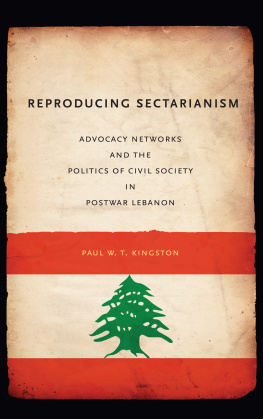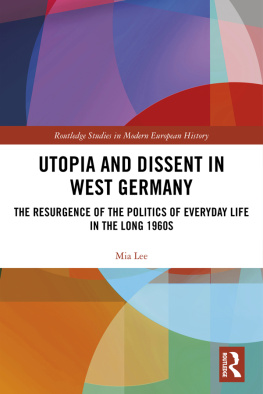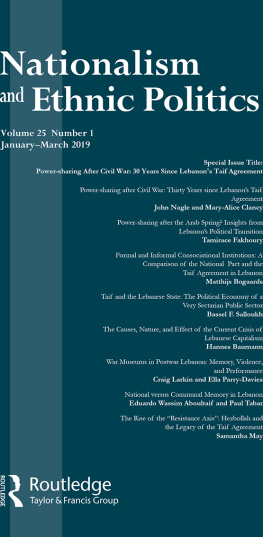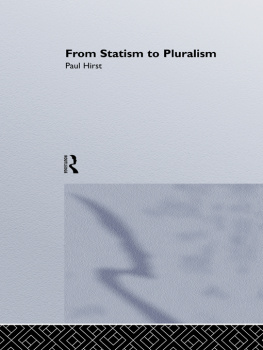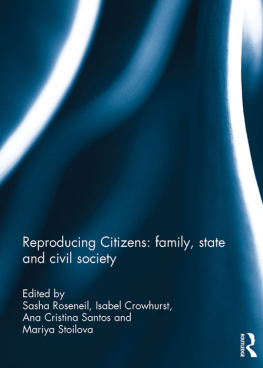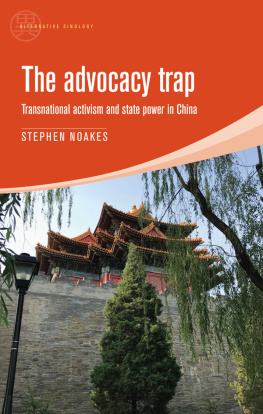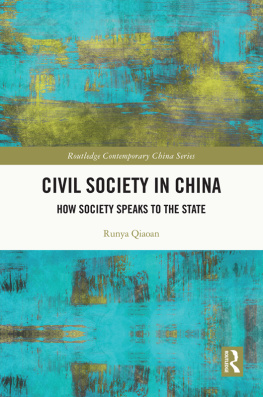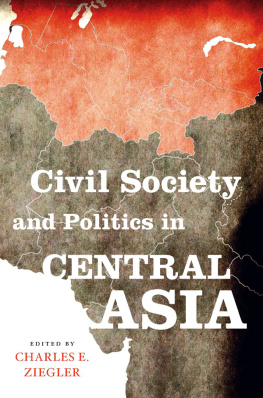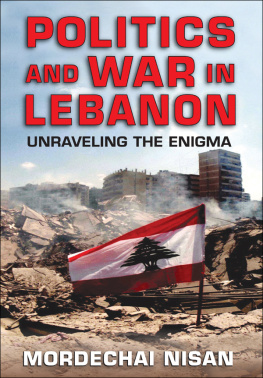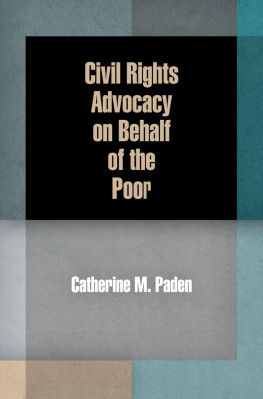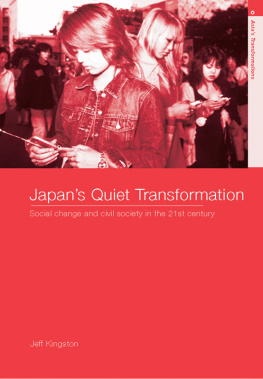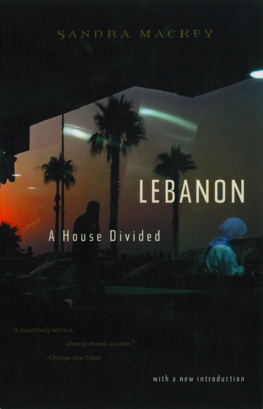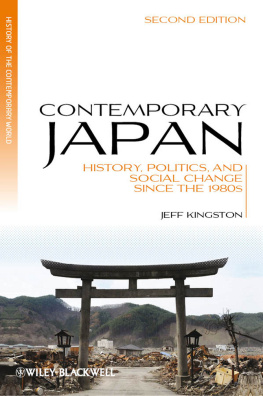Published by State University of New York Press, Albany
2013 State University of New York
All rights reserved
Printed in the United States of America
No part of this book may be used or reproduced in any manner whatsoever without written permission. No part of this book may be stored in a retrieval system or transmitted in any form or by any means including electronic, electrostatic, magnetic tape, mechanical, photocopying, recording, or otherwise without the prior permission in writing of the publisher.
For information, contact State University of New York Press, Albany, NY www.sunypress.edu
Production by Eileen Nizer
Marketing by Anne M. Valentine
Library of Congress Cataloging-in-Publication Data
Kingston, Paul W. T.
Reproducing sectarianism : advocacy networks and the politics of civil society in postwar Lebanon / Paul W. T. Kingston.
p. cm.
Includes bibliographical references and index.
ISBN 978-1-4384-4711-7 (alk. paper)
1. Political participationLebanon. 2. Non-governmental organizationsLebanon. 3. Pressure groupsLebanon. I. Title.
JQ1828.A91K56 2013
322.4095692dc23
2012027406
10 9 8 7 6 5 4 3 2 1
Preface and Acknowledgements
My fascination with Lebanon and its politics has lasted a long time. It was the subject of my first attempt at writing an essay on the Middle East as an undergraduate at the University of Toronto. Later, I had my first opportunity to visit Lebanon in early 1992just one year after the Syrians coercively brought an end to the Lebanese civil waras part of my professional duties with the Damascus office of the United Nations Development Programme (UNDP) in Syria, a visit during which I spent much of my spare time traveling around and soaking in the ravaged sights of this war-torn but beautiful country. It was only after I began teaching at the University of Toronto Scarborough (UTSC) that I finally decided to explore more deeply the dynamics of Lebanon's complex political economy. This decision was sparked by my participation in a workshop in the early 1990s sponsored by the Ottawa-based International Development Research Center (IDRC) in which representatives from civil society in the Middle East were brought together to meet and network with representatives from civil society in Canada. Each Middle East country was represented by spokespeople from a single national NGO coordinating committeesave for the Lebanese delegation that was represented by spokespeople from two. While relations between these two Lebanese delegations were cordial and cooperative, clearly there was something there that demanded further examination. My curiosity was peaked, and I have not looked back for over a decade.
I have an infinite number of people and institutions that I need to thankmore than is possible in this short acknowledgement sectionbut I will do my best to remember those that were of particular importance to me. In Canada, my first word of thanks must go to the Social Sciences and Humanities Research Council of Canada for sponsoring this research in the first place. While completing the book took much longer than they probably would have expected or wanted, this project would never have come to fruition without their crucial support. I would also like to thank my students and colleagues in the Department of Social Sciences at UTSC, the Department of Political Science on the St. George campus, the Near and Middle East Civilization Department (especially Jens Hanssen and Jim Reilly), and those in the International Development Studies program at UTSCwith special thanks to Ken Macdonald for those stimulating conversations, especially with respect to the environmental side of my research, and to Judith Teichman for her academic and moral support in my times of struggle with this project. I am also grateful for the help of a number of research and editorial assistants along the way, including Attiya Ahmad, Ionna Bala, Salwa Maalouf, Caroline Kingston, and more recently Lama Mourad, Begum Uzun, and Carolyn Ursabia, and I would like to devote a special word of thanks to Elinor Bray Collins, who was my original research assistant way back in the mid-1990s and who has been a highly valued and fun companion on my Lebanese journey ever since. There are also several colleagues and friends in Canada who deserve special mentionMinelle Mahtani, Marie Joelle Zahar, Janine Clark, who was kind enough to labor over some of my chapters in their early stages and whose insights have always been invaluable, and Ian Spears, whose conversations (over a beer and a burger!) I always value.
But this was really a project made possible by the help and cooperation of so many within Lebanon itself. Among the most important institutional affiliations to which I owe a debt of gratitude are the Department of Political Science at the American University of Beirut (AUB), where I was based during my sabbatical in 1999; the Near East School of Theology, where I lived during that same sabbaticala wonderfully hospitable environment for that year; the Center for Arab and Middle East Studies at AUB, with which I was affiliated in 2008 and where I made some terrific contactsespecially Karim Makdisi, Nadia as-Sheikh, Hannes Baumann, and Karin Seyfort; and the Institut francais du Proche-Orient in Beirut, whose library and staff were extremely helpful. I would especially like to thank Elizabeth Picard, whose path I was fortunate enough to cross on several occasions; Karam Karam, whose groundbreaking work on associational politics in postwar Lebanon, in addition to his friendly collegiality and advice, was invaluable; Catherine Le Thomas for her stimulating and enjoyable company; and Myriam Catusse, whose friendly, empathetic, and supportive advice and companionship I greatly appreciated. I would also like to thank Cyclamen Tours for making it possible to regularly escape the confines of Beirut and discover the joys of hiking across Lebanon's beautiful mountains; and the AUB tennis team for keeping me fit, sane, and humbled during my research sabbatical leave in 2008!
To all those activists who gave me lots of their time and put up with my continuous questions as I grappled with the complexities of Lebanese associational and political life, my deepest thanksespecially to Lina Abou Habib, the late Wadad Chakhtoura, Iqbal Dughan, Mona Khawli, Fadia Kiwan, Linda Matar, Lamia Osseiran, Zoya Rouhana, and Mona Yakan in the field of women's advocacy; Salmon Abbas, Mirvat Abu Khalil, Hala Ashur, Ali Darwish, the late Ricardo Haber, Berj Hatjian, Faisel Izzeddine, Fifi Kallab, Pierre Mouawad, Chris Naylor, Michel Skaff, Clement Zakia, Abdullah Zakia, and Rami Zurayk in the field of environmental advocacy; Nabil Abed, Jahda Abou Khalil, Mohammad Barakat, Mousa Charafeddine, Hyam Fakhoury, Abdullah Ibrahim, Pierre Issa, Nawaf Kabbara, Sylvana Lakkis, Amer Makarem, Adib Nemeh, the team at IRAP, and the team at SESOBEL in the field of disability advocacy; and Leyla Zacharia and Mayla Bahkash for their more general insights into the early postwar dynamics of Lebanese associational life. My biggest hope is that what I have produced here may be of use to their ongoing efforts.
I have too many words of personal thanks than is possible to give. Those whom I cannot forget are Judith Harik, who probably does not remember me, but whose initial facilitation and assistance when I first came to Beirut as a researcher in the summer of 1995 I have not forgotten; the al-Azar family, and especially Rima and Diana, who introduced me to the best of Lebanese hospitality; Lina Abou Habib and Omar Traboulsi, who patiently guided me along the way from the moment I first met them at their Oxfam-UK office in Lebanon to the final stages of my researchtheir help has been immeasurable; Mirvat Abu Khalilwhere do I begin!without whose assistance this research project would never have gotten off the ground; Youssef Chaitani and his lovely family, whose friendship, open-ended hospitality, and stimulating commentaries on Lebanese political life always enrich my stays in Beirut; Jocelyn Dejong, Tareq Tell, and their two daughters, Tamara and Mariam, whose hospitality and friendship always provided me with an escape from the craziness of life in Beirutit was certainly my good fortune that these long-standing friends of mine from St. Antony's, Oxford, had made the American University of Beirut their home; Joe and the Helou family for their warm hospitality; Nabil and Sarah Shehadi for their spiritual nourishment; and a special word of thanks and appreciation for two I hold very dear in Beirut: Salma Kojok, for her friendship and companionship; and Denise Badawi, my favorite Arabic instructor, sometime translator, and valued friend. For me, Lebanon will always include Salma and Denise.


